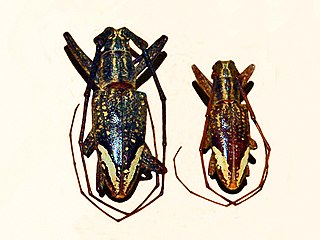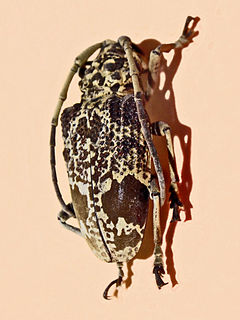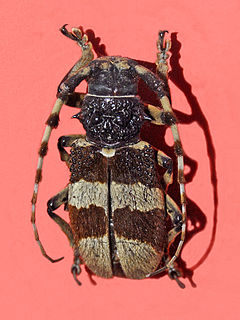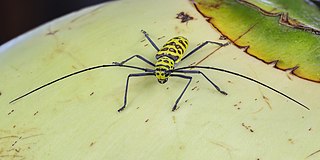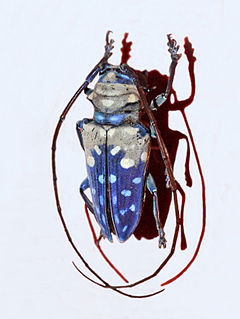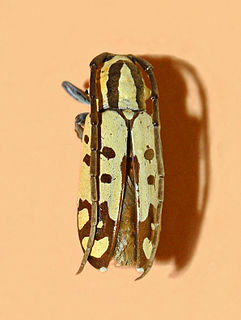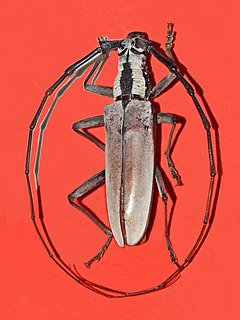| Rhopalizus nitens | |
|---|---|
 | |
| Museum specimen of Rhopalizus nitens | |
| Scientific classification | |
| Kingdom: | |
| Phylum: | |
| Class: | |
| Order: | |
| Family: | |
| Subfamily: | |
| Tribe: | |
| Genus: | |
| Species: | R. nitens |
| Binomial name | |
| Rhopalizus nitens (Fabricius, 1781) | |
| Synonyms | |
| |
Rhopalizus nitens is a species of round-necked longhorn beetles of the subfamily Cerambycinae.

The longhorn beetles are a cosmopolitan family of beetles, typically characterized by extremely long antennae, which are often as long as or longer than the beetle's body. In various members of the family, however, the antennae are quite short and such species can be difficult to distinguish from related beetle families such as the Chrysomelidae. The family is large, with over 26,000 species described, slightly more than half from the Eastern Hemisphere. Several are serious pests. The larvae, called roundheaded borers, bore into wood, where they can cause extensive damage to either living trees or untreated lumber. A number of species mimic ants, bees, and wasps, though a majority of species are cryptically colored. The rare titan beetle from northeastern South America is often considered the largest insect, with a maximum known body length of just over 16.7 cm (6.6 in). The scientific name of this beetle family goes back to a figure from Greek mythology: after an argument with nymphs, the shepherd Cerambus was transformed into a large beetle with horns.

Cerambycinae is a subfamily of the longhorn beetle family (Cerambycidae). The subfamily includes over 715 genera, which, in total, consist of some 3,900 species. The subfamily is most widely distributed in the Americas, with 430 species in 130 genera in its neotropical regions. Within the family, the only subfamily of comparable diversity is the Lamiinae.







